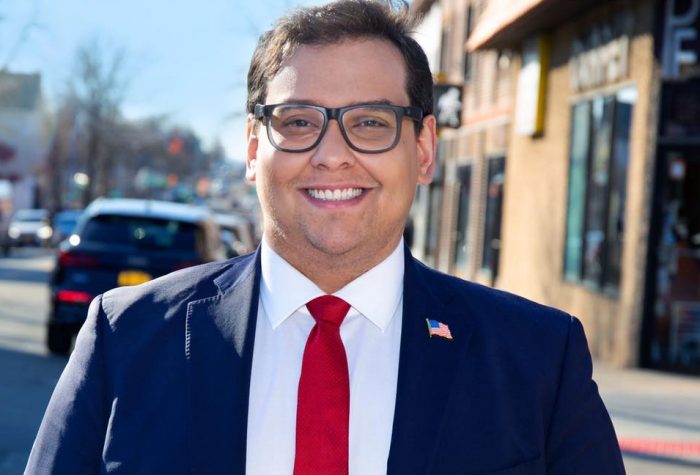By Aidan Johnson
A familiar face is joining the race for the 1st Congressional District.
On the night of President Joe Biden’s State of the Union address of March 7, former Congressman George Santos (R) announced via social media platform X — formerly Twitter — he is running for the seat.
“Tonight, I want to announce that I will be returning to the arena of politics and challenging Nick [LaLota] for the battle over NY1. I look forward to debating him on the issues and on his weak record as a Republican,” Santos posted.
In the same post, Santos claimed that New York “hasn’t had a real conservative represent them since I left office arbitrarily, thanks to empty suits like Nick LaLota.”
LaLota (R) was one of 311 House members from both sides of the political aisle on Dec. 1, 2023 who voted to remove Santos from office due to a report from the House Ethics Committee.
According to a statement from the Ethics Committee, the Investigative Subcommittee found “substantial evidence” that Santos had engaged in illegal activity including using campaign funds for personal purposes and knowingly causing his campaign committee to “file false or incomplete reports with the Federal Election Commission.”
Currently, Santos faces a 23-count indictment by federal prosecutors in New York for offenses including wire fraud, aggravated identity theft and money laundering.
In an interview, LaLota expressed skepticism on whether or not Santos was actually planning on running in the 1stt District, and if he would even get enough signatures through petitioning to qualify for the ballot. [For inclusion on the House ballot, the candidate needs 5% of voters from the candidate’s same party or 15,000 signatures, whichever is less.]
“I’m highly skeptical of the things that George Santos says … but if it is true [that he is running], it’s retaliation against me for leading the charge to expel him from Congress,” LaLota said.
“I think he’s a long shot to qualify to get in the ballot,” LaLota said, adding “I just don’t think there’s that much support for George anywhere in this country, but especially on Long Island.”
Jesse Garcia, Suffolk County chairman of the Republican Party, who recently criticized News 12 for including Santos as a guest on its “Power and Politics” program, released a statement denouncing him as a credible candidate.
“The people have no appetite for this bad comedy show to continue. His candidacy and whatever petitions he might file will have the same level of credibility as the degree he claimed to have received from Baruch College,” Garcia said, additionally calling LaLota “a commonsense conservative and naval veteran who continues to fight for the hardworking families of Long Island.”
Suffolk County Republicans are not the only ones criticizing Santos. In a statement, Democratic 1st Congressional District candidate Nancy Goroff said “This would be funny if it weren’t so serious to see George Santos and Nick LaLota fight to see who is more extreme. The reality is that both oppose a woman’s right to choose, have failed to lower costs for families and care more about publicity than getting things done for Long Island families. Not to mention that neither actually lives in the district.”
The other Democratic 1st Congressional candidate John Avlon could not be reached for comment.





